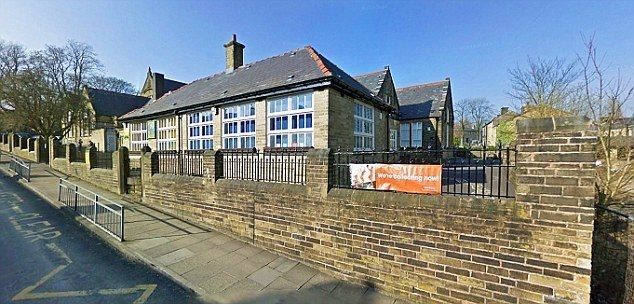An English junior school which doesn’t discipline its children and tells them to ignore exams because they’re all unique has been given a ‘good’ rating by the school inspection quango Ofsted.
Barrowford Primary school in Lancashire hit headlines last year when a letter it sent home to its year 6 pupils telling that they were all “special and unique” went viral. Pupils were told “we are concerned that these tests do not always assess all of what it is that make each of you special and unique. The people who create these tests and score them do not know each of you.
“They do not know that your friends count on you to be there for them or that your laughter can brighten the dreariest day. … They do not know that you have traveled to a really neat place or that you know how to tell a great story … So enjoy your results and be very proud of these but remember there are many ways of being smart.”
Now it has emerged that the school has absolutely no disciplinary policy at all, choosing instead to adopt New Age techniques in which pupils are not ‘judged’, the Mail on Sunday has reported – and that, despite this, Ofsted has rated the school as ‘good’.
In place of a disciplinary policy, school policy states: “A child is not to be defined as naughty. It should be explained to the child that they have made a wrong choice.”
Barrowford’s 355 pupils, aged between 4 and 11, are encouraged to sort out disputes between themselves using phrases such as “you have emptied my resilience bucket”, whilst teachers dealing with unruly pupils are told not to discipline them, but instead to inform the pupil that they are impacting the teacher’s “emotional wellbeing”.
Teachers can ask the child to go into another class, but to avoid ‘humiliating’ the child, teachers are asked to use the phrase: “You know I think you are wonderful but your mistaken behaviour shows me that at this moment in time it would be best for you to have some time here, where these children can help you to stop making that mistake.”
Headteacher Rachel Tomlinson has admitted that the approach is “extreme,” but insists that it is good for the children. “We don’t label children naughty at all. It’s important that they seem themselves as intrinsically good and build up a positive sense of self,” she said.
But despite the lack of structure, Ofsted, the schools inspection body, has awarded the school a ‘good’ rating. “The school currently meets the government’s floor standard, which sets the minimum expectation for pupils’ attainment and progress,” the report reads; applauding the head-teacher’s “strong vision and aspiration” for the school.
According to Ofsted’s definition, a school rated ‘good’ is “effective in delivering outcomes that provide well for all its pupils’ needs. Pupils are well prepared for the next stage of their education, training or employment.”
The school has a relaxed attitude to bullying, eschewing punishment for “restorative conferences” designed to “heal the damaged relationship” – even if a child was harmed. Despite this, Ofsted merely notes “Some parents and carers … feel that bullying is not dealt with effectively. However, pupils insist that they feel safe in school, that they understand the different forms that bullying can take and that since the anti-bullying drive, which took place last year, the school is free from bullying of any type.”
The school’s unusual approach to discipline is not the only aspect that sets it apart from most others. Rewards such as house points, stickers and certificates have also been banned, as the school insists that children should learn to do things “because it’s the right thing to do”, and not in order to gain reward.
And the school has ditched regular scheduled breaks and lunchtimes, allowing pupils and teachers to decide when to have their breaks. Ofsted positively applauds this, reporting “Play and lunchtimes are flexible. Classes take breaks when it is convenient and this minimises disruption to learning. Consequently, there is always plenty of space on the playground, which helps to maintain good standards of behaviour.”
Last night Chris McGovern, a long-serving teacher and Ofsted inspector who runs the Campaign for Real Education, said: “They are well intentioned but misguided – it’s a recipe for chaos. Children need boundaries, they prefer clarity and they want to see punishment for the bullies.”
Ofsted’s ruling on Barrowford comes in sharp contrast to it’s treatment of the Durham Free School, a Christian school which was forced to close when Ofsted inspectors branded its pupils ‘bigots’ for mentioning terrorism when asked about Muslims.

COMMENTS
Please let us know if you're having issues with commenting.